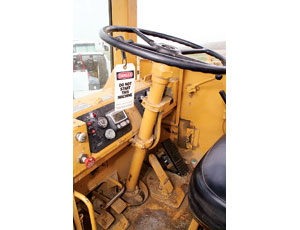Lately, there has been a smell of discrimination rising in the air above California, where some regulators would love to completely ban some internal-combustion engines in favor of cheerful electric motors. But for most heavy-duty applications, there still is no viable alternative to the diesel engine. It is the most efficient way to move earth, build bridges and pave roads after more than 100 years of improvement including turbochargers, electronic boards, exhaust-gas recirculation coolers, high-pressure fuel injectors, particulate filters and catalytic convertors.

Few people are against cleaner air, but California’s general policy of treating diesels as though they cause black-lung disease ignores basic facts that speak for themselves: Diesel engines today are just as clean as other engines, if not cleaner. Modern construction machines equipped with clean diesels are more productive than older, dirtier ones, and therefore the incentive to replace, retrofit or repower already exists under the federal Clean Air Act. Finally, electric "hybrid" vehicles are rarely any more clean or efficient than a diesel, unless, of course, your electric hybrid is a diesel.
Fuzzy logic has long polluted the consumer market in which vehicles like the Toyota Prius and the Volkswagen Jetta TDI are locked in a green-car showdown. In one corner is a Japanese gas-electric hybrid, in the other a German diesel, and the U.S. consumer is stuck in the middle. Both machines deliver superb fuel economy in the 40-mpg range, fewer greenhouse-gas emissions and cost about the same to own and operate. Yet some regulators would rather encourage you to buy the gas-electric hybrid even if it means the same economy and emissions with less comfort and performance than the diesel. How does that make sense to a buyer?
Likewise, common sense related to construction equipment is threatened by similar discriminatory pressure. While some environmental groups have criticized California lawmakers for a "back- room" budget deal that relaxed the state’s upcoming rules to curb off-road diesel emissions, the trade-off actually is a win-win for both sides because it restores balance between the environmental fantasies of air-quality regulators and the reality of construction-fleet owners. As the mainstream press has acknowledged, diesels can play a huge role in conservation and cleaner air.
Moving forward, common sense and fairness must prevail. Some contractors in California pulled ahead of the stringent and confusing regulations by upgrading their fleets, and now they will receive the extra credit they deserve. A compromise like the California budget deal recognizes that diesels are still in a position to power the world’s economic engine.

Post a comment to this article
Report Abusive Comment